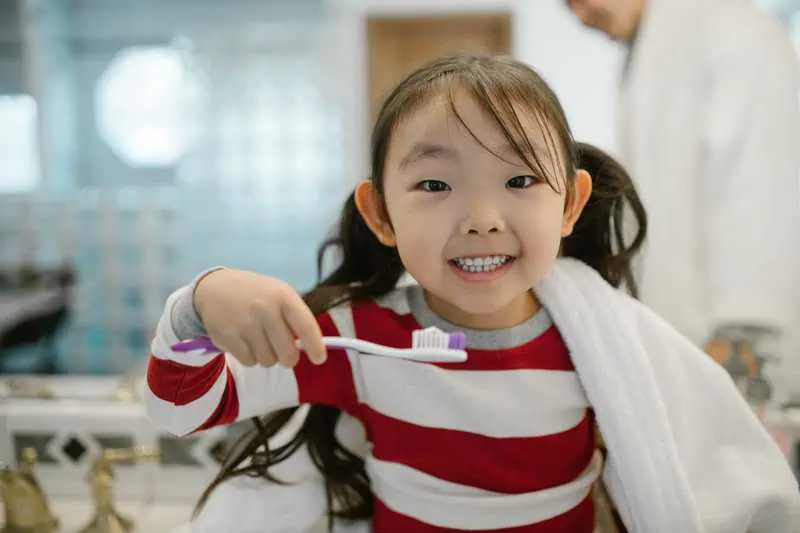
Maintaining good oral hygiene is one of the essential aspects of a child’s well-being. Teaching your kids how to brush their teeth is a fundamental step in ensuring their dental health and protecting their tiny teeth against trouble. Establishing good oral care habits from a young age sets them on a path to a lifetime of beautiful smiles and healthy teeth. However, your little ones won’t be able to brush on their own for a few years and will need your help. Here are some tips from your pediatric dentist in Long Island on how to brush your kids’ teeth effectively and make the experience enjoyable.
It’s never too early to begin caring for your child’s oral health. Even before the first tooth makes an appearance, gently cleaning your baby’s gums with a clean, damp cloth or a soft infant toothbrush will help keep the mouth clean and remove bacteria. As soon as that first tooth erupts, it’s time to start brushing.
Selecting the right toothbrush and toothpaste is crucial. For kids, opt for a soft-bristle toothbrush with a small head, specifically designed for their age group. Choose a fluoride toothpaste that is age-appropriate and safe for swallowing. Many toothpaste brands offer options for children that are both gentle and effective.
Tooth brushing can be a fun and bonding experience for you and your child. Turn brushing into a game or a special thing you do together. You can play their favorite song or create a fun brushing routine, like pretending to brush away “sugar bugs” or “cavity monsters.” Children often mimic their parents, so one of the most effective ways to teach them about oral hygiene is to practice good dental care yourself.
Kids learn by example, so it’s important to show them how to brush their teeth correctly. Use a mirror so they can see what you’re doing. Teach them to brush all surfaces of their teeth, including the fronts, backs, and chewing surfaces, and to brush their tongue gently as well. Make sure to tell them that they don’t need to scrub hard and brushing in small, gentle circles is best.
When it comes to toothpaste, especially for kids, less is more. For kids under the age of three, a smear of toothpaste about the size of a grain of rice is sufficient. For children aged three to six, a pea-sized amount of toothpaste is appropriate. Remind your child not to swallow the toothpaste and to spit it out after brushing.
Kids learn through consistency, and this also applies when teaching good oral hygiene habits. Set a regular tooth brushing schedule, typically twice a day, in the morning and before bedtime. Stick to this routine to ensure your child gets used to the idea of brushing their teeth as part of their daily life.
Until your child is old enough to brush independently with proper technique – usually between ages six and nine – be there to supervise their brushing. This ensures that they are brushing for the recommended two minutes and reaching all areas of their mouth.
Praise and positive reinforcement can go a long way in motivating your child to brush their teeth. Encourage them with kind words and maybe even a small reward or sticker chart to track their brushing progress.
Teaching your child to brush their teeth can be a process, and they may resist at times. Stay patient, and avoid making it a battleground. Offer them choices and involve them in the process as much as possible.
Even with regular brushing, it’s important to schedule regular dental checkups with your pediatric dentist in Long Island for your child. The dentist can identify any potential issues early and provide guidance on your child’s oral health.
Teaching your kids how to brush their teeth is a vital part of their overall health and well-being. By starting early, making it fun, demonstrating proper technique, and establishing a consistent routine, you can help your child develop good oral hygiene habits that will benefit them throughout their lives. Remember to be patient, use positive reinforcement, and see a pediatric dentist in Long Island regularly. With your guidance and care, you can set your child on the path to a lifetime of healthy smiles and strong teeth.